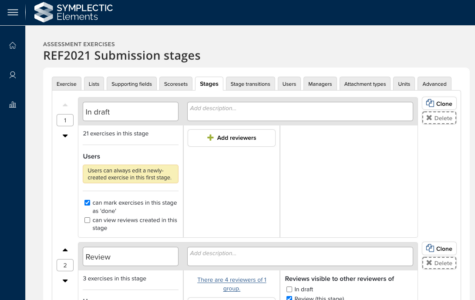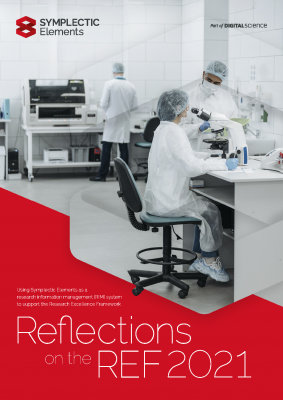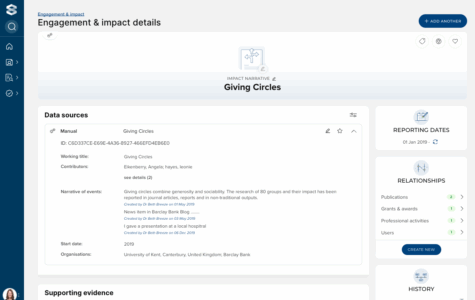Reduce the burden of compliance
Government and funding bodies around the world mandate reporting on research quality, impact, and open access policy compliance. We know how much time and effort this can take – so we’ve built tools to make it easier.
By reusing the rich data already captured in Symplectic Elements and integrating with the widest range of external sources in the industry, you can eliminate manual re-keying and spreadsheets, cut down on duplication, and focus on strategic insight.
Our automated data harvesting pulls metrics and metadata from Dimensions, Web of Science, Scopus, Europe PMC, Altmetric, and more – helping you make informed quality judgments and prepare high-quality submissions with minimal effort.






